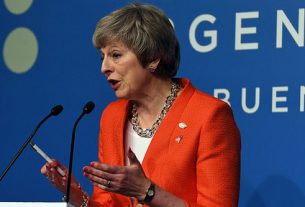G7 leaders are set to fail on agreeing a timeline to end coal fired power stations having been been warned the world is on the brink of disaster and that their decisions are “the most important in human history”.
Renowned broadcaster and naturalist Sir David Attenborough told the leaders of seven of the world’s richest countries: “The natural world today is greatly diminished. Our planet is warming fast. That is beyond doubt. Our societies and nations are unequal and that is sadly is plain to see.
“But the question science forces us to address specifically in 2021 is whether as a result of these intertwined facts we are on the verge of destabilising the entire planet?
“The decisions we make this decade – in particular the decisions made by the most economically advanced nations – are the most important in human history.”
The 95-year-old addressed the leaders in Cornwall’s Carbis Bay on Sunday (June 13) amid myriad protests and expectations of a pledge to almost halve G7 emissions by 2030 (compared to 2010 levels).
Leaders fail to agree pledge to phase out coal
A promise to phase out petrol and diesel engines, and to end government subsidies for fossil fuels – including the headline grabbing move away from coal fired power plants (unless they have technology to capture carbon emissions) – was highly anticipated.
However Politico report on Sunday that leaders “failed to agree on a timeline” to end burning coal for electricity, and instead will only commit to “accelerate” its phasing out.
An EU official explained that not all G7 members are able to commit to a date at this point, “because the challenge would be too high in terms of energy supply in that country.”
Boris Johnson reportedly “wants to use the UK-hosted COP26 UN climate talks in November to lay out a plan on ending coal power” while a spokesperson for the prime minister said the UK will continue to “emphasize that renewable energy is the way forward.”
Blue Planet Fund is previously pledged money
The Guardian reports the £500 million for the “Blue Planet Fund” – to protect the world’s oceans and the coasts of poorer countries – announced by Johnson has already been pledged in the 2019 Conservative manifesto, and is part of the UK’s five year £11.6 billion climate finance budget to help developing countries.
Announcing the fund, Johnson said: “As democratic nations, we have a responsibility to help developing countries reap the benefits of clean growth through a fair and transparent system.”
He added: “The G7 has an unprecedented opportunity to drive a global green industrial revolution, with the potential to transform the way we live.”
Former Cabinet Office minister and first secretary of state Damian Green MP said hosting the G7 summit gives the UK both an “opportunity and responsibility to lead on climate and vaccines”.
Green, who is also a member of the international Conservative Environment Network, added: “We hear a lot about ‘levelling up’ at home; now that message needs to be heard at the G7″.
He said the Blue Planet Fund “has important work to do on biodiversity and conservation around the world” but the £500 million “was announced last year”.
Green added, “there is no new money being announced today, which is becoming a pattern after the announcements on vaccines and girls’ education.”
‘PM’s plan is peppered with hypocrisy’ – Greenpeace
Greenpeace UK’s executive director John Sauven said: “Johnson has simply reheated old promises and peppered his plan with hypocrisy, rather than taking real action to tackle the climate and nature emergency.
“While commitments to provide more support to developing nations are absolutely vital, until they cough up the cash, we’re taking nothing for granted.
“The dismal track record of rich nations to honour commitments made over a decade ago on climate finance, alongside the UK’s decision to slash its aid budget, make it hard to take the so-called ‘Build Back Better for the World’ plan with anything more than a pinch of salt.”
Canada – ‘Good Friday Agreement is obviously important’ to us
The climate crisis was front and centre of the talks – which also discussed the pandemic and efforts to vaccinate the world, providing support for girls’ education and devise a G7 strategy to deal with China – but the consequences of Brexit has dominated proceedings.
Specifically the UK government’s difficulties with the EU regarding the Northern Ireland protocol, which US president Joe Biden has consistently and repeatedly warned must not “imperil” the Good Friday Agreement.
Even Canada’s prime minister Justin Trudeau raised the issue in talks with Johnson with Ralph Goodale, the Canadian High commissioner to the UK, telling reporters: “The Good Friday Agreement is obviously important from Canada’s point of view.”
He added. “We know how complex those border issues are with respect to Ireland and Northern Ireland. We don’t underestimate the difficulty of finding a satisfactory resolution, but simply to signal we’re aware of it.”
Johnson had claimed a deal was “easily doable” but tensions are escalating and a column in today’s Observer states: “The reason for much of the EU’s irritation was a feeling that the UK under Johnson simply could not be trusted.”




